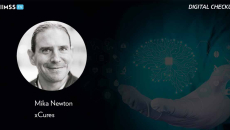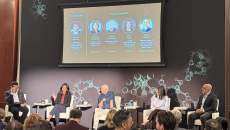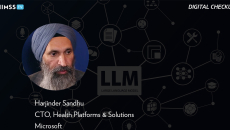AI regulation
HIMSS25
Jonathan French, HIMSS' senior director of public policy, lays out the key points of HIMSS' response to the White House's request for information from the public on developing an AI action plan.
Two new memos update federal AI policy, which the White House says will accelerate innovation, strengthen public trust and prioritize U.S.-developed AI tools.
The lack of a strong set of AI-specific regulation in the U.S. allows innovation to happen quickly, but that also requires companies to be transparent and for the industry to take responsibility for its own actions, says Mika Newton, CEO of xCures.
Leaders of government public policy at HIMSS are prioritizing health equity, AI regulation, cybersecurity and workforce development while urging unified policies that support healthcare innovation.
The bill would allow AI to be classified as a "practitioner licensed by law" to administer FDA-approved drugs.
The EU guidelines highlight prohibitions on harmful manipulation, real-time biometric identification and social scoring.
President Trump revoked Joe Biden's 2023 order, which required HHS to establish an AI safety program and developers to share test results, among other directives.
At an event outside JPM, which included a representative from HHS, panelists discussed the government's role in advancing AI and the evolving healthcare landscape as a new administration transitions into power.
Harjinder Sandhu, Microsoft CTO of health platforms and solutions, discusses the readiness of OpenAI for use in healthcare, bias within AI and GPT-4, and recommendations for regulators.
Amazon Web Services chief medical officer Dr. Jared Saul relays how AWS helps the life sciences sector leverage AI and machine learning for drug discovery, concerns around AI/ML use in healthcare, and the value of regulating the technology.







